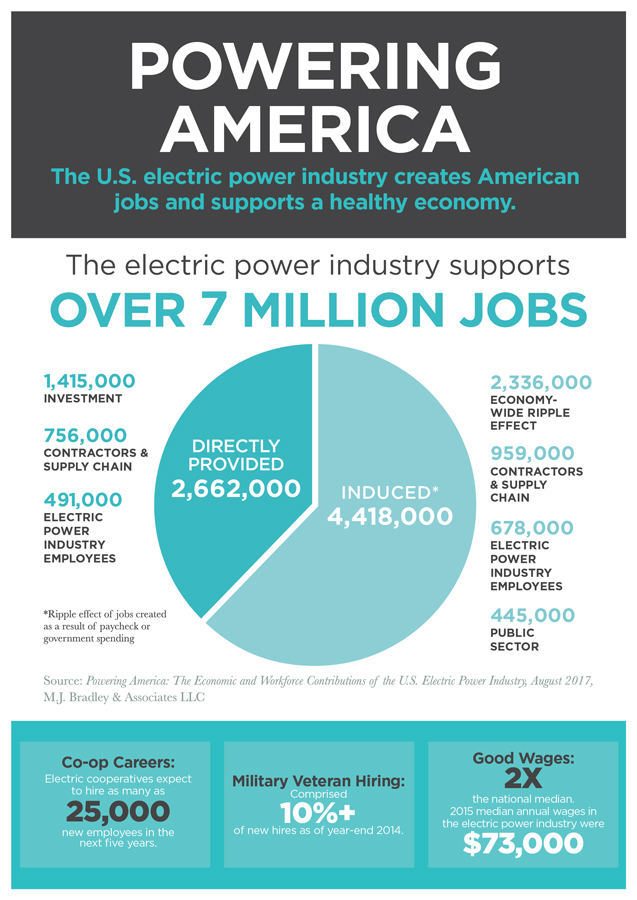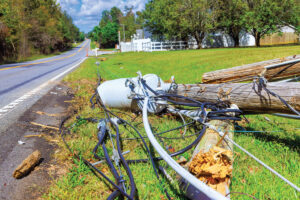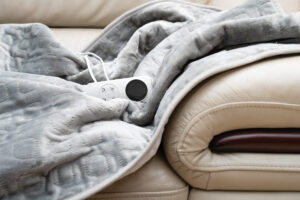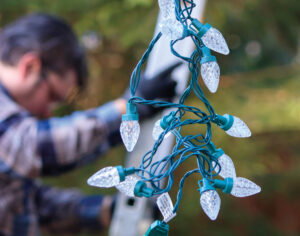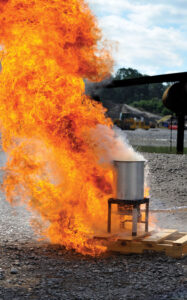 As families and friends gather over the holidays, food is often a big part of the equation. From stuffing to brining to leftovers, everyone has a favorite Thanksgiving menu. According to the National Fire Protection Association (NFPA), Thanksgiving is the peak day for home cooking fires. The average number of fires on Thanksgiving more than double that of an average day.
As families and friends gather over the holidays, food is often a big part of the equation. From stuffing to brining to leftovers, everyone has a favorite Thanksgiving menu. According to the National Fire Protection Association (NFPA), Thanksgiving is the peak day for home cooking fires. The average number of fires on Thanksgiving more than double that of an average day.
With a house full of family, it’s easy to want to be part of the conversations and activities occurring. Games are being played, football and parades are on tv, and folks are catching up with the latest family news. However, the leading cause of fires in the kitchen is unattended cooking, and more fires start in the kitchen than any other place in the home. There are steps you can take to prevent cooking fires.
1. Be alert, and stay in the kitchen while frying, grilling, boiling or broiling food.
2. If you are simmering, baking or roasting food, check it regularly and use a timer to remind you that you are cooking.
3. Keep anything that can catch fire such as oven mitts, wooden utensils, food packaging, towels or curtains, away from your stovetop.
4. Turn all handles inward so they can’t be bumped or grabbed by children.
5. Have a kid-free zone of at least 3 feet around the stove or anything hot, and never hold a child while cooking.
6. When frying, gently add food to the pot or pan to prevent the oil from splattering.
7. Always keep a lid beside your pan. If you have a fire, slide the lid over the pan and turn off the burner. Do not remove the cover because the fire could start again. Let the pan cool for a long time and NEVER throw water on the fire.
8. Never disable a kitchen smoke detector.
9. Keep pets away from cooking surfaces and countertops.
10. Wear safe clothes – avoid loose clothing and long, flowy sleeves.
Another form of cooking that gained popularity a few years ago is deep frying turkey. Turkey fryers are especially dangerous and can easily hold more than three gallons of scalding oil. The NFPA discourages the use of gas-fueled turkey fryers, as currently designed, due to the significant danger that hot oil will be released at some point during the cooking process.
Be aware of these dangers when deep frying a turkey:
1. If you use a turkey fryer, NEVER allow children or pets to be anywhere near it, and always have an adult watch the fryer while it cooks.
2. Turkey fryers can easily tip over, spilling hot cooking oil over a large area. Always place the fryer outside on a flat surface that can’t burn, such as cement.
3. An overfilled cooking pot will cause oil to spill when the turkey is put in, and a partially frozen turkey will cause cooking oil to splatter when put into the pot. Be sure your turkey is completely thawed.
4. Even a small amount of oil spilling on a hot burner can cause a large fire.
5. Only use a fryer with a thermostat control. Without that control, deep fryers can overheat oil to the point of starting a fire.
6. The sides of the cooking pot, lid and handles can get dangerously hot.
There’s nothing more satisfying than cooking a meal for the people we love. Make safety a priority in your kitchen at Thanksgiving and all year long.
Source: National Fire Protection Association.

